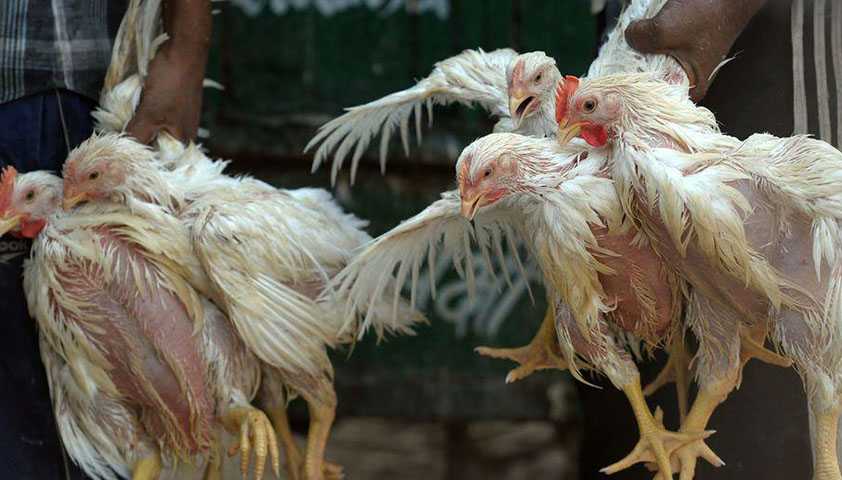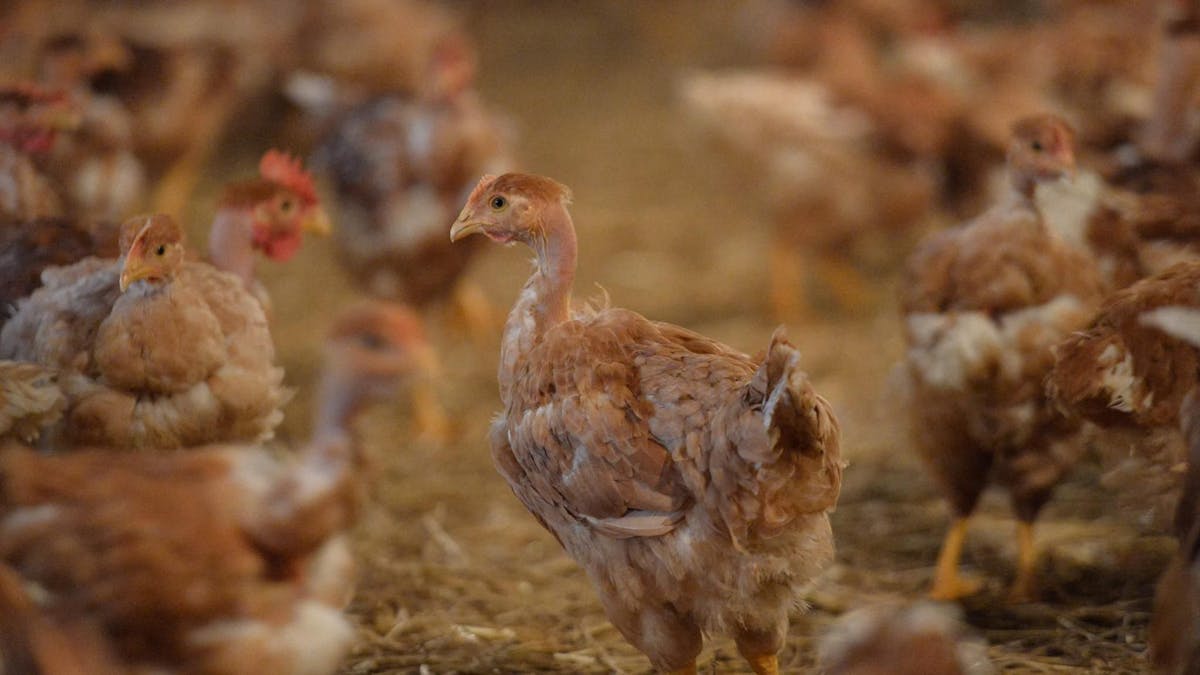Translation Google
Burkina Faso: bird flu declared in the country
Nadia Chahed |
13.01.2022
Burkina Faso
AA / Ouagadougou / Dramane Traoré
The Burkinabè government announced on Thursday the presence of avian flu in the country and invited the populations to take the necessary precautions.
The information was given Thursday by the Minister of Agriculture, Moussa Kaboré, after a ministerial council.
He pointed out that after having noted a "high mortality" of poultry, the authorities carried out analyzes which confirmed the presence of avian flu.
Kaboré said the government is working to strengthen the control and surveillance system.
On Friday, the ministers in charge of Health and Animal Resources will jointly host a press conference on the issue, announced government spokesman Alkassoum Maïga.
Avian influenza is an infection caused by type A influenza viruses, and in particular by the H5, H7 and H9 subtypes. This infection can affect almost any species of bird, wild or domestic.
-----------------------------------------------------------
Burkina: cases of avian flu observed in the country
January 13, 2022
The Minister of Animal Resources has during the Council of Ministers of this Thursday, January 13, 2022, a report on the situation of avian flu in Burkina Faso.
After several cases of poultry mortality on farms observed by the technical veterinary services of Burkina, the ministry took several samples which were analyzed both in Burkina and at the level of the reference laboratory of the World Health Organization. animal.
The results are clear, poultry deaths in farms are due to avian flu.
To this end, the Ministry of Animal Resources has prepared a response plan which was presented to the Council of Ministers which allows Burkina, in addition to the measures already taken, to limit the spread of this flu which is very contagious.
However, the Minister asks breeders to be cautious and to apply a certain number of bio-security measures to avoid contamination of their breeding.
The ministry is hard at work to ensure that all cases that arise in the country are controlled. Measures have been taken to control and contain the existing cases and will intensify in the days to come.
Writing
Infowakat.net
Burkina Faso: bird flu declared in the country
Nadia Chahed |
13.01.2022
Burkina Faso
AA / Ouagadougou / Dramane Traoré
The Burkinabè government announced on Thursday the presence of avian flu in the country and invited the populations to take the necessary precautions.
The information was given Thursday by the Minister of Agriculture, Moussa Kaboré, after a ministerial council.
He pointed out that after having noted a "high mortality" of poultry, the authorities carried out analyzes which confirmed the presence of avian flu.
Kaboré said the government is working to strengthen the control and surveillance system.
On Friday, the ministers in charge of Health and Animal Resources will jointly host a press conference on the issue, announced government spokesman Alkassoum Maïga.
Avian influenza is an infection caused by type A influenza viruses, and in particular by the H5, H7 and H9 subtypes. This infection can affect almost any species of bird, wild or domestic.
-----------------------------------------------------------
Burkina: cases of avian flu observed in the country
January 13, 2022
The Minister of Animal Resources has during the Council of Ministers of this Thursday, January 13, 2022, a report on the situation of avian flu in Burkina Faso.
After several cases of poultry mortality on farms observed by the technical veterinary services of Burkina, the ministry took several samples which were analyzed both in Burkina and at the level of the reference laboratory of the World Health Organization. animal.
The results are clear, poultry deaths in farms are due to avian flu.
To this end, the Ministry of Animal Resources has prepared a response plan which was presented to the Council of Ministers which allows Burkina, in addition to the measures already taken, to limit the spread of this flu which is very contagious.
However, the Minister asks breeders to be cautious and to apply a certain number of bio-security measures to avoid contamination of their breeding.
The ministry is hard at work to ensure that all cases that arise in the country are controlled. Measures have been taken to control and contain the existing cases and will intensify in the days to come.
Writing
Infowakat.net






Comment